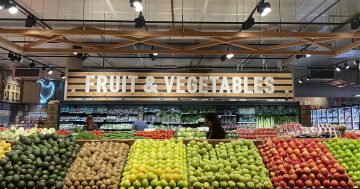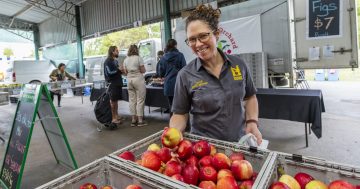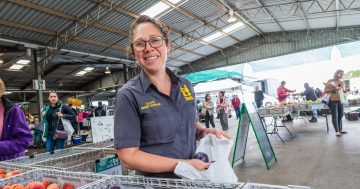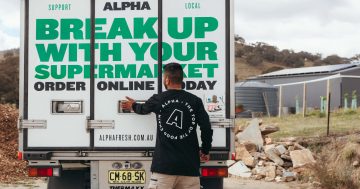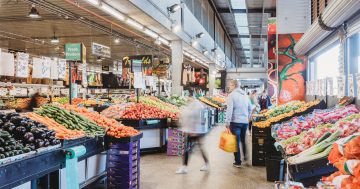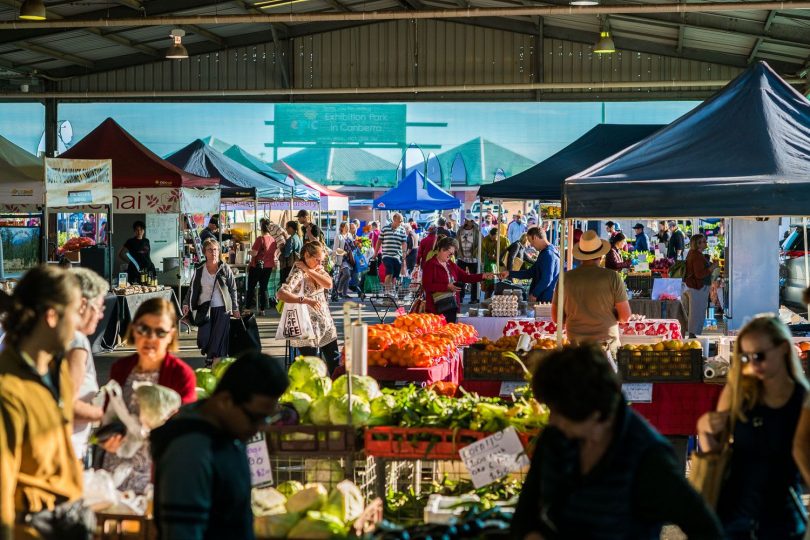
The Capital Region Farmers Market is the largest regional market in the Southern Tablelands and there is plenty to go around. Photo: Capital Region Farmers Market.
While the Omicron COVID-19 variant is wreaking havoc around Australia, shoppers are being urged not to worry because there is plenty of food available, especially at local farmers’ markets.
Two of Canberra’s biggest local produce markets are assuring the public that although the shelves may be bare at some of the big grocery stores, there is plenty to go around at their venues.
“So come on down and grab everything you need for a great week ahead,” Capital Region Farmers Markets posted to Facebook.
Belconnen Fresh Food Markets also took to social media to say that their market is open and fully stocked.
“No supply chain issues in our shops.”
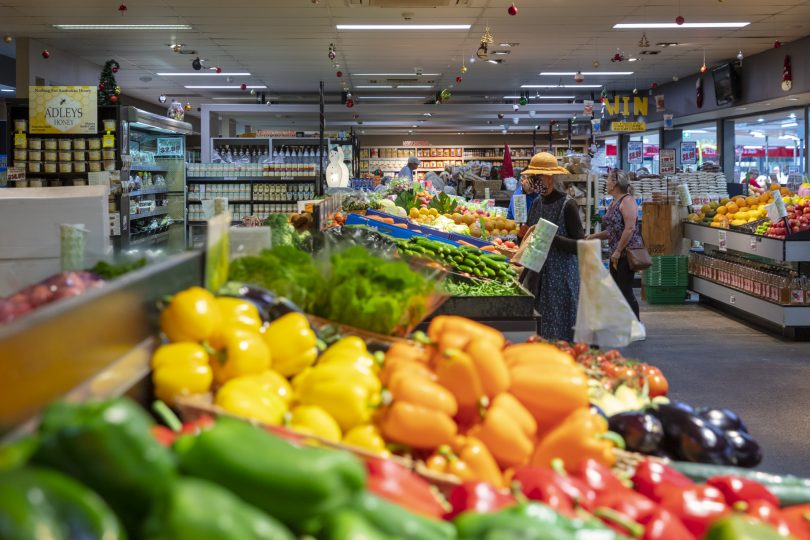
Tom’s Superfruits at Belco Fresh Food Markets. Photo: Thomas Lucraft.
Over the border, NSW Farmers president James Jackson says there are good production levels of fresh food despite the challenging weather of the past few months, and he is encouraging shoppers not to panic buy.
“The big challenge for the agricultural sector now is sick workers and a lack of access to rapid antigen tests, which are combining to create these broader supply chain issues you hear about,” he says.
Bega Produce Market coordinator Sue Hill says her market is an essential service and remained open during the Omicron outbreak.
Fortunately, the outbreak hasn’t affected her market’s food supply and there is plenty of fresh produce coming in.
“We don’t have to transport it far, so we’re not experiencing an issue with trucks having to get through, or with packaging,” she says.
Throughout the COVID-19 pandemic, supermarkets have seen supply shortages at times, including on the NSW Far South Coast.
Sue says difficulties obtaining supplies from far away had provided people with an opportunity to look at what is already available locally.
“There’s definitely more growers and people coming to markets [since the COVID-19 pandemic began] and they are mostly locals,” she says.
“That’s what the pandemic did – it made us go, ‘Oh, what do we have that can help us? What do we have available?’
“They can buy local cheese, local meats, local vegetables, bread and soap.”
Mark Barraclough, president of SAGE NSW Inc, which manages the SAGE Farmers Market in Moruya, said the current food supply disruption caused by the COVID-19 pandemic highlights the importance of building a resilient local food system.
“Throughout the pandemic, Eurobodalla’s local food system has offered a way for people to avoid supermarkets and crowds and buy healthy, affordable, fresh food locally, either at the SAGE Farmers Market or e-Market, from smaller retail outlets, or directly from farmers,” he says.
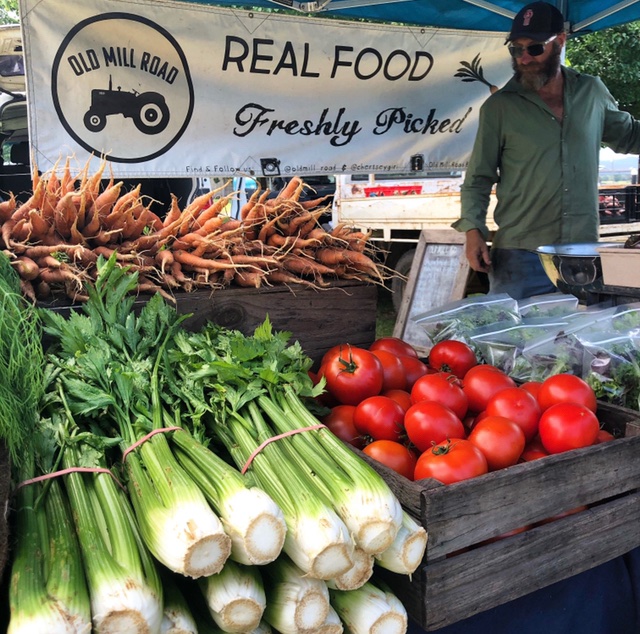
Fraser Bayley from Old Mill Road Farm shows off fresh produce at SAGE Farmers Market in Moruya. Photo: SAGE.
“Today, it’s filling the gaps left by supermarkets in disarray, to ensure people in our community have fresh food shopping options.”
Mark says it is a good time to remind people to seek out, buy and support local food all the time – not just in a crisis – to ensure the community always has food security.
“There are many converted local food supporters who will tell you that once you’ve started the journey and learnt how to shop and cook with food in season, picked on the day you buy it, with minimal transport and handling, there’s no looking back,” he says.
On a wider level, James from NSW Farmers is encouraging state and federal governments and the big supermarkets to urgently look at ways to supply farmers with rapid antigen tests so they can keep sick workers at home and healthy workers in the fields harvesting fruit and vegetables and managing livestock.
“We need the agriculture sector – including harvest workers and those in the meat processing sectors, as well as those in transport and handling – to get prioritised access to rapid antigen testing in the latest outbreak, lest we return to the scenes of early 2020 when customers were stockpiling food items,” he says.
But Sue says the major challenge affecting her markets and producers comes from climate change – from the intense winds, rain, heat and drought that comes with it.
If it is rainy or very windy, no one wants to go to an outside market.
While Bega Produce Market is open, her advice for shoppers is to be cautious, keep themselves safe and keep wearing face masks and washing hands.
Original Article published by Albert McKnight on About Regional.













